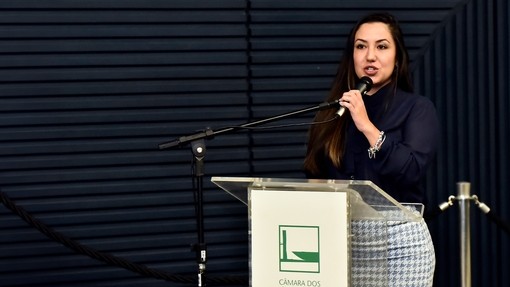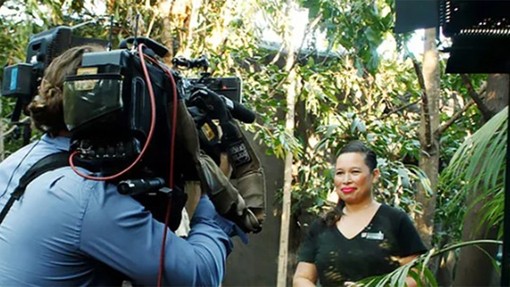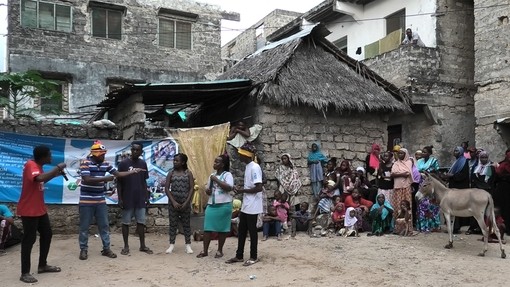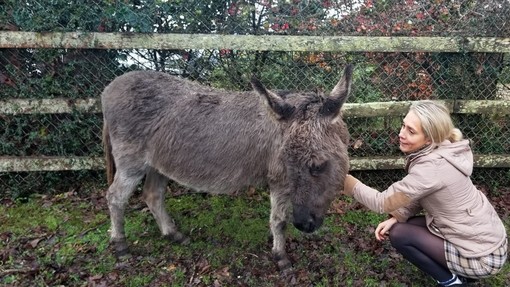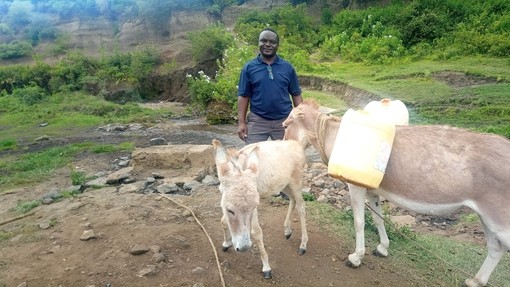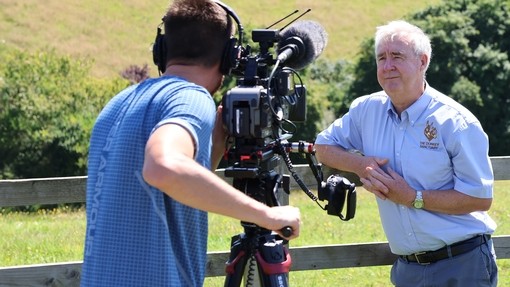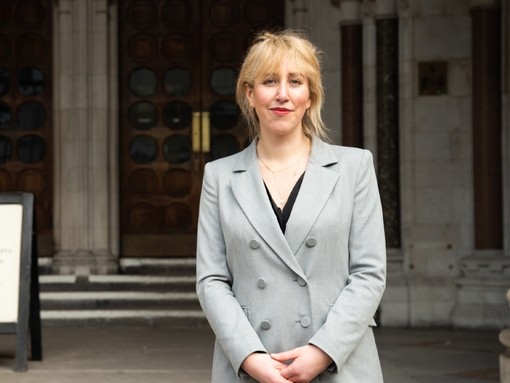
An interview with Edie Bowles
Advancing animal welfare doesn’t just demand relentless campaigning and veterinary expertise – solid legal frameworks that can both be understood and enforced are essential to embedding change. Edie Bowles is an Animal Protection Solicitor and the Managing Director of Advocates for Animals, the UK’s first animal protection law firm. She shares more about this surprisingly vast area of law, and how her organisation is helping to protect animals including donkeys.
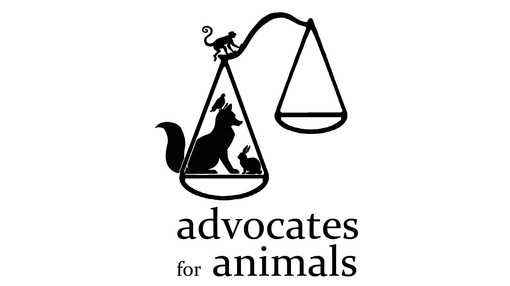
What does your job involve?
Being an Animal Protection Solicitor covers a lot, considering it sounds incredibly niche. It is an vast area of law because of all the different ways animals are treated in society. They’re either viewed as wildlife - and there are laws that protect wildlife and habitats - or they’re treated as objects, so you can engage consumer laws and product safety laws. Cruelty to animals engages the criminal law. They are also used in entertainment and in laboratories, so there are whole frameworks around that too.
You have to be open to continuously learn and apply different pieces of legislation. But most importantly, for me, is that being an Animal Protection Solicitor closely aligns with my passion. I have a job where I get to represent an issue that I care deeply about.
Where does your passion for this work come from?
Growing up my grandad had a farm and I’d spend all my time with the cows, the dogs in the kennels or his horse and donkey, Melody and Delilah. I loved any time I could have with the animals. And I particularly loved the calves. From a young age I realised that I really cared about animals and now, at the tender age of pushing on 40, I still am just as obsessed with them. My walks in the morning are getting ridiculous because of the number of dogs I stop to speak to. It’s getting worse with age, not better!
But Advocates for Animals is not about my personal beliefs and passions. We are about helping animals in as big or small a way as possible by giving them the protections they are entitled to under the law. We serve lots of different types of organisations and individuals who are helping animals in many different ways. I actually don’t think really loving animals is a prerequisite for being in this field.
Who are your clients?
Our clients are predominantly the animal protection community, such as The Donkey Sanctuary, who hold a special place in my heart because they were our first client. That was a massive confidence boost and really helped us get momentum as a new law firm. Then we had a few clients come really quickly after that. In the last five or six years, we’ve probably worked with all the major animal groups in the UK, including Animal Aid, World Animal Protection and The Humane League UK.
How have you worked with The Donkey Sanctuary?
I’ve been involved with The Donkey Sanctuary’s campaigning work as an external legal advisor around the donkey skin trade. This has been primarily in East Africa, although I have given advice for other regions, such as Brazil and other parts of Africa. I’ve also given advice on online selling, the shipment of donkey skins, biosecurity and animal welfare.
I had no idea about the donkey skin trade before starting this work. That’s the thing about being an Animal Protection Solicitor, you are always finding new ways that humans harm animals. It’s been memorable, because it has been very educational. The Donkey Sanctuary campaigning team are very creative and one of my favourite parts of this work is finding unique approaches together.
I like that The Donkey Sanctuary recognises that donkeys do have a tough life in some countries and they are working to make sure they are protected, but they do it in a way that is non-judgmental and recognises cultural sensitivities. They have been a big part of the African Union Moratorium, essentially agreeing to halt the trade. They’re also working closely with other regional bodies.
Did you always know you wanted to be an Animal Protection Solicitor?
It never even crossed my mind that it would be a career possibility when I was younger. I chose my degree subject law and somewhere on the journey I realised that I wanted to use the law to help others. It was only after graduating and doing my vocational part of the course, that I discovered animal law. I got involved as much as I could on a voluntary basis. Then, years later, a position arose to practise as Animal Lawyer for Cruelty Free International and I jumped at the opportunity.
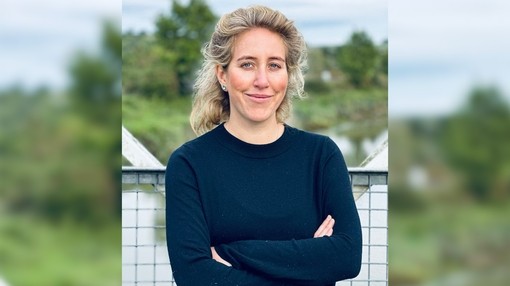
It’s a very difficult field to get into because there aren’t really any jobs in this area. Primarily there’s not much money in the area; animals can’t pay and there’s also no legal aid for these cases, so it means that it’s a challenge to ensure the practice is viable. However, we are having success building the area and in making it a sustainable practice area.
Doing this work, you realise two things. One, that it is very broad and very intellectually challenging. But you also realise just how gruelling it is emotionally. You are confronted with horrific cruelty both on an individual basis and on a systemic basis. Lots of people from the outside think that it’s this fluffy, cute area of law and in reality it’s not. You will see the worst of humanity and you will see some of the worst suffering imaginable. I’ve got quite effective at converting negative feelings into fuel to fight and challenge.
It doesn’t sound like it’s for everyone.
It’s definitely not. One, because not everyone wants to be exposed to it for really understandable reasons. And, two, the law’s not for everyone. It’s one of those careers that has got a lot of kudos around it, but actually the law is primarily just a lot of reading and learning. The law at its core for some people can be very dry.
What does an average day look like for you?
In terms of legal work, it is usually behind-the-scenes client advice. They might be running a campaign - for example it could be on the donkey skin industry or fish farming or zoos - and they want to understand what the law is. At the moment, I also have a few court cases on the go, so it could be dealing with the court documents, making sure all the deadlines are met and talking to barristers to make sure the case is in order.
But because I run the organisation, every day also looks like overseeing other members of the team and doing the business management side of it, too. As a result of that, no day is the same, there’s a bit of management, a bit of admin, a bit of litigation and a bit of general advice.
You provide advice in a lot of different legal jurisdictions. How does that work?
I provide an initial overview of what the legal framework is and the opportunities. If we need specific advice or legal action in a country, we work with local lawyers.
In lots of the countries I have supported in, East Africa especially, they have some good animal welfare laws. Whether they’re being applied properly in practice is a separate conversation, but I think you could say the same in the UK in terms of enforcement of the law for animals. We make assumptions about the UK being so far ahead in certain things, when lots of countries have similar standards in place too. There are also a lot of people who care and want to make a difference.
I was in Uganda recently at a meeting in the Ugandan Parliament with the East African Legislative Assembly. That was pretty up there in terms of my career! Being in a parliament in Uganda, with all the key decision makers from that bloc of countries, and talking about donkeys felt incredibly important. Some really incredible, reassuring things were said during that session about treating animals humanely and why it matters. No matter where you go, there will be people who care about animals.
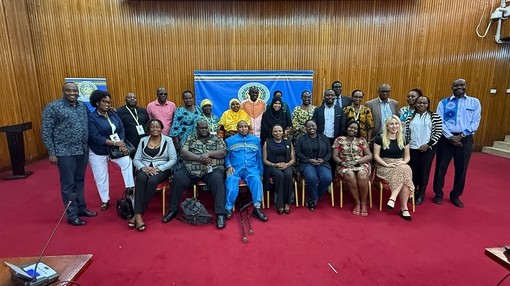
Seeing the impact you make must be very rewarding.
It’s incredible. Helping my clients is obviously such a huge driver. But it’s also so nice to realise a legal angle has shifted something bigger. It might be in a tangible way - a policy position or something like that - or maybe in one of those more intangible ways, by changing public conversation or raising awareness around something.
It’s been such a great realisation that it actually doesn’t matter how small your team is or even if there’s just one of you. If you put your head down, work, get creative and then commit yourself, you do see real changes and real impact. I think that’s such a nice, reassuring thing to realise that you can effect change.
Find out more about Edie and Advocates for Animals
Visit the Advocates for Animals websiteShare this page
Tags
- Blog

